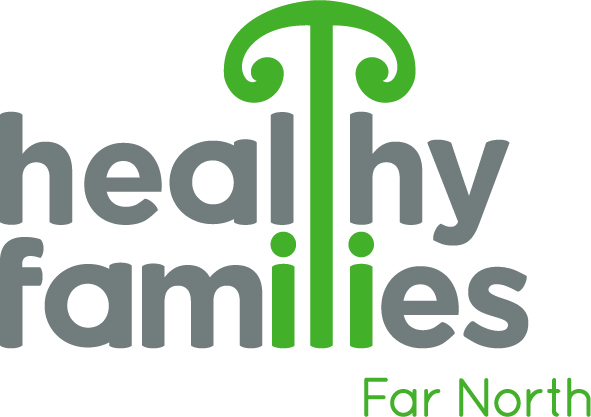Sit less, move more. That’s one of the recommended guidelines to increase physical activity and reduce the risk of preventable chronic disease in Aotearoa.
We know there are health benefits to getting the body moving, but what happens when we focus on more than just our physical health?
Rugby League Northland are taking a different approach to organised sport, working alongside Healthy Families Far North to raise the walls of Te Whare Tapa Whā in a bid to increase participation and wellbeing in rural communities.

The Peters Sisters competition was the first wāhine-specific tournament to be held in Te Tai Tokerau in more than 20 years, with six highly contested 16s and women’s teams from different rohe playing over three consecutive weekends.
The series was built from a ‘test and learn’ process, looking across different codes and settings to understand what it takes for whānau to have meaningful and positive experiences in sports.
The way New Zealand measure and approach health is by and large physical, but the inaugural competition proved it’s about more than just the game.
“It’s the community, the culture, and the team spirit,” said Baylee Maniapoto, player of the women’s Tūhoronuku team.
“I’m quite new to league, but I’ve already learnt so much in such a short amount of time, so it’s been awesome.”
Leearah Totorewa Tauranga of Te Aupōuri Kuaka 16s said it was about meeting new people and representing where she’s from.
“The best thing about this competition for me has been meeting new people and making new friends.”
“I’m just proud to be here and to represent where I come from.”
 For 90 percent of the Te Aupōuri Kuaka women’s side, it was their first-time playing rugby league.
For 90 percent of the Te Aupōuri Kuaka women’s side, it was their first-time playing rugby league.
“There really isn’t much up here for them to compete in,” said Travis Abraham, coach of the most northern-based team, Te Kao.
“It's really good to see the bonds that they create through the sport and to see all the new ladies giving it a go."
Myra Connell from Hauāwhiowhio said she felt supported by the entire community.
Even though it’s a competitive sport, we’re not in competition with each other, we’re here to give āwhina and to get the best out of everyone which is really cool.”
“There’s been a nice sisterhood. You’ve got the mums, the babies, and all our kids are being taken care of. Yes, it’s a competition, but it’s about whānau and wanting to see all our wāhine do well.”
According to Kōkiri Ai Te Waka Hourua - Te Tai Tokerau moving forward in partnership: A strategy for play, active recreation, and sport (2021 - 2030), only 67 percent of Northland adults are active compared to 72 percent nationally. Fewer Northlanders are physically active for 5 hours or more per week, with less achieving at least 2.5 hours of activity per week.
For young people in Te Tai Tokerau, 93 percent are physically active compared to 94 percent nationally, but when compared to Northland as a whole, Māori have lower rates of physical activity overall.
Healthy Families Far North Manager, Kath Wharton, said creating the conditions for kōtiro and wāhine to participate is key.

“For me success is creating the conditions for our ladies and our girls to participate.”
“All our rohe have taken a different approach to developing and growing the game here. It’s not your traditional camps or trainings, it’s grounded in Te Ao Māori, it’s grounded in Northland, the approach is very Te Tai Tokerau and that’s due to the people sitting in those spaces.”
“It reflects who we are as whānau and as Māori…it’s designed in a way that suits our people, it’s about whanaungatanga and having a place for everyone to come together.”
From Village Games to the Peters Sisters Competition, whānau have helped identify conditions that ensure meaningful, positive, and enjoyable experiences both on and off the field.
Systems Innovator Rawinia Everitt said it comes down to whānau, connections and having a place where te ao Māori is recognised and celebrated.
“What we’ve learnt is that it’s important for whānau to feel welcomed, to have somewhere they feel safe and where they feel supported.”
“It’s important for people to make new and meaningful friendships, to develop skills both on and off the field, and to know there’s an opportunity to strive for higher honours if they want it.”

Building all four cornerstones of Te Whare Tapa Whā in sport has the potential to increase physical activity across the board, she added.
“We know there’s a strong focus on taha tinana when it comes to sport. We’re starting to see a stronger focus on our taha hinengaro, but imagine how much better our collective wellbeing would be if we considered all four walls of Te Whare Tapa Whā.”
“For Māori, our taha wairua, the role of whānau and the balance of hinengaro are as important as the physical, and we recognise that there’s so much more we can do to manaaki those who choose to participate.”
Healthy Families Far North will continue to work in partnership with Rugby League Northland to understand and explore what it takes for whānau to participate in organised sport, and how we can collectively raise the walls of Te Whare Tapa Whā to recognise our health beyond the taha tinana.
